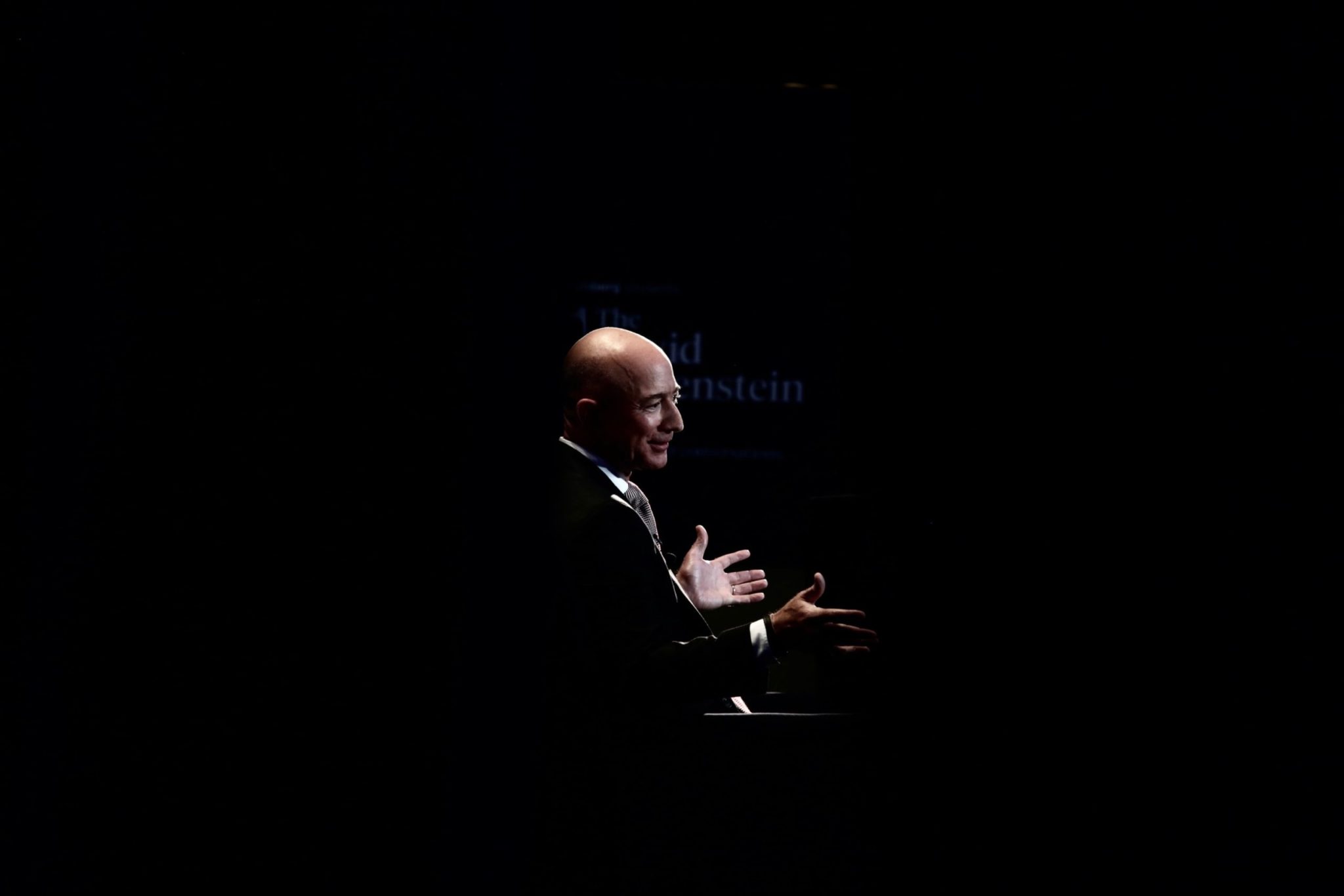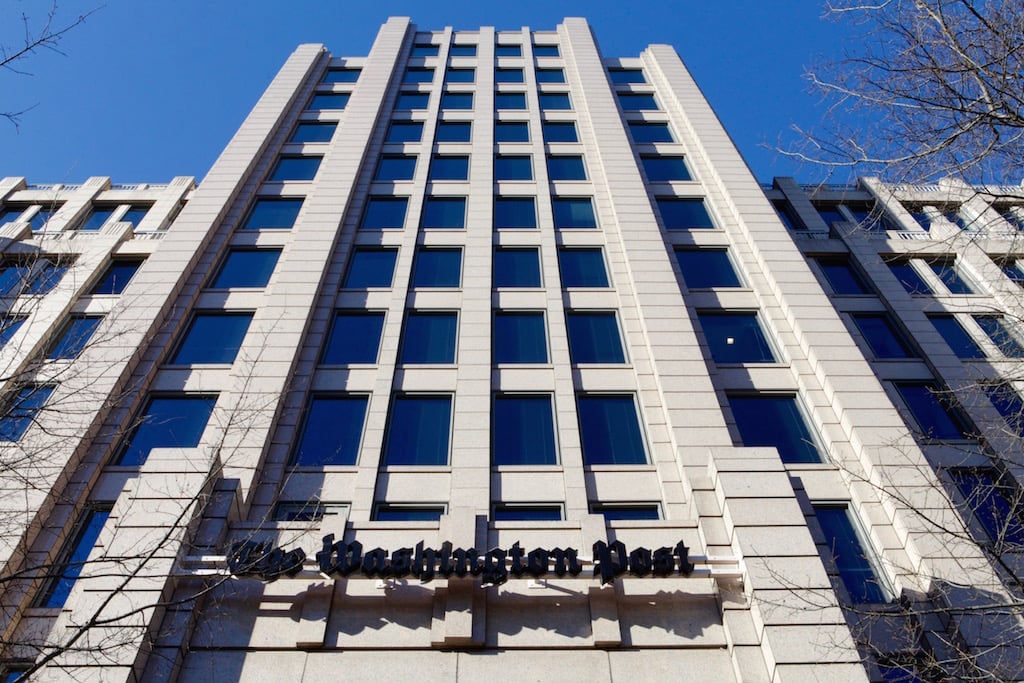Jeff Bezos won applause from the large, well-dressed crowd in the International Ballroom of the Washington Hilton Thursday night by defending the press’s right to make them uncomfortable. “It is a mistake for any politician to attack media and journalists,” he said. He was being interviewed onstage by David Rubenstein at an Economic Club of Washington, D.C., event, and President Trump had somehow come up.
“There has never been any public figure who likes their headlines,” Bezos said. Anyone in public life should welcome the accountability the press provides. The President, he advised, should say, “I’m glad I’m being scrutinized.” After talking about the dangerous erosion of norms under the Trump presidency, Bezos noted that Marty Baron, the executive editor of the Bezos-owned Washington Post, tells his newsroom that while the President may be at war with the press, the press isn’t at war with the President. Among the other solid fundamentals of the United States of America, the press will survive this weird period of our history, he predicted. “The media is going to be fine,” Bezos said.
Bezos is a curious prophet for transparency. His aversion to comment is well-known. A reporter I was sitting near in the ballroom’s press area Thursday night tried to approach Bezos to ask him a question about working conditions at Amazon’s fulfillment centers; he was quickly redirected to the media seats.
Bezos also regularly ices out the reporters on his payroll: He’s visiting the Post Friday to open up a new newsroom floor, but, as Post reporters Jonathan O’Connell and Robert McCartney wrote Tuesday, “Post spokeswoman Kris Coratti declined to provide details” about the newsroom visit “and an Amazon spokesman told Post reporters that Bezos would not be available to answer questions about HQ2,” Amazon’s much-anticipated second headquarters.
Bezos let down the crowd last night when he declined to say what everyone was hoping would be true: That HQ2 would come to the DC area. (At the end of the evening, Rubenstein presented him with a lovely map of L’Enfant’s original plan for the District and a Capitals sweater.) The announcement will come sometime this year, Bezos maintained.
The Post has at times absorbed Bezos’s approach to outside scrutiny. If HQ2 comes to this area, bringing a promised 50,000 jobs with it, it will touch multiple areas of the news organization’s coverage. Business. Metro. Real Estate. Tech. Feds. Even food–can you imagine what HQ2 would mean for, say, Crystal City’s dining scene?
The Post insists that it won’t be an issue that it shares a honcho with a company that could wreak such huge changes on its coverage area. “The Washington Post covers Amazon just as it does any other company, and in those stories, we consistently disclose that Jeff Bezos owns The Post,” Post spokesperson Shani George tells Washingtonian in an email. George declined to set up an interview with anyone who might be involved with covering HQ2: “Regarding our coverage plans, that is not something we typically share in advance, so we won’t be able to help with this one.”
Washingtonian is a competitor in the local market and the Post has no legal obligation to talk about anything with us. But this silence also comes from a news organization that cashiered its ombudsman a few months before Bezos bought the paper in 2013, because as then Publisher Katharine Weymouth wrote, “We know that media writers inside and outside The Post will continue to hold us accountable for what we write, as will our readers, in letters to the editor and online comments on Post articles.”
So why, when it comes to what could be the biggest local story in years, won’t the Post answer questions about who might lead such coverage, and what its approach will be to a potentially vastly disruptive local initiative led by the guy who signs its employees’ paychecks?
The Post appears to be listening to what its owner does instead of what he says. Rubenstein asked Bezos Thursday night about the possibility of government regulation of Amazon. “All big institutions of any kind are going to be and should be examined and inspected,” he said. “They’re going to get scrutiny.” Of course, that doesn’t mean those big institutions have to provide any answers.




















